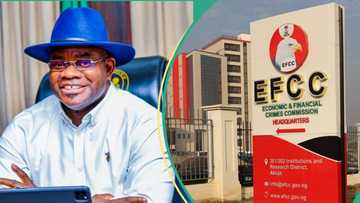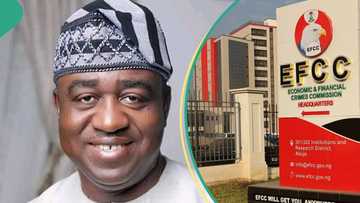EFCC Takes Down 34 Suspects Allegedly Sabotaging Naira-dollar Exchange Rate
- The EFCC has arrested no fewer than thirty-four suspects in Abuja for alleged currency manipulation
- The move became necessary as efforts by the CBN to ensure liquidity in the system yielded no significant result
- The agency added that once investigations are concluded, the suspects will be brought before the court
Legit.ng journalist Victor Enengedi has over a decade's experience covering Energy, MSMEs, Technology and the stock market.
The Economic and Financial Crimes Commission (EFCC) announced the arrest of 34 individuals suspected of involvement in foreign exchange (FX) fraud.
According to a statement released on Friday, the EFCC conducted the operation through its task force, focusing on currency mutilation, dollarization of the economy, and FX malpractice.
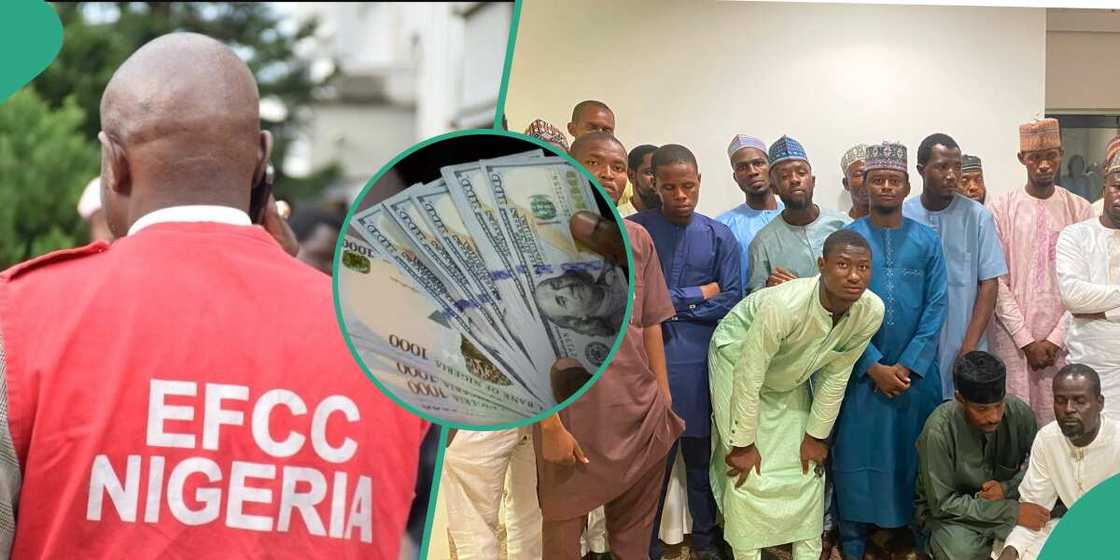
Source: UGC
The arrests occurred in Wuse Zone 4, Abuja, on April 26, following a sting operation based on credible intelligence regarding illegal dollar sales.
It would be recalled that Legit.ng earlier reported that the EFCC had assembled a 7,000-person special task force to operate across its 14 zonal commands, targeting individuals involved in illegal dollar transactions.
The EFCC's initiative, in collaboration with the Nigeria Police Force (NPF) and the Nigeria Customs Service (NCS), led to the arrests of 115 suspected currency racketeers in Enugu state two months ago.
EFCC cracks down on naira-dollar exchange fraud
A sting operation following credible intelligence about illegal sales of dollars at the Wuse Zone 4 area of the Federal Capital Territory Abuja on Friday, April 26, 2024, led to the arrests of the suspects.
The suspects arrested by the EFCC's Taskforce on Currency Mutilation, Dollarization of the Economy and Forex Malpractice include:
Usman Mohammed, Abdullahi Nasir, Abubakar Saleh, Mohammed Kabir Ibrahim, Abubakar Ghadafi, Muktar Usman, Umar Abubakar Abba, Yakubu Sani, Aminu Abubakar, Muhammed Suleman Abara, Yusuf Tahir, Usman Lawal, Usman Lawal.
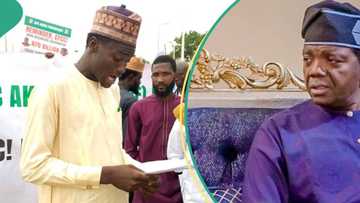
Read also
BREAKING: Protest hits EFCC HQ over probe of alleged N70bn fraud levelled against Tinubu's minister
The agency also arrested Usman Umar, Amina Garba Rola, Muhammed Aliyu, Murtala Haruna, Sani Mohammed, Umar Farouk, Muhammed Sagiuru, Aminu Salisu, Lawal Bello, and Munzali Hashim.
Others include Jamilu Suleiman, Mustapha Umar, Mubarak Tanimu, Adamu Garba, Mohammed Usman, Bello Musa, Saleh Mohammed Naseer, Zaharadeen Yau, Musa Umaru Adamu, Usman Machido, and Abdulaziz Abubakar Abba.
The EFCC stated that the arrest resulted from its continuous efforts to sanitize and stabilize the FX market. It added that the suspects will be brought before the court once investigations are concluded.
On February 24, the Central Bank of Nigeria (CBN) and the Office of the National Security Adviser (ONSA) partnered to probe and punish individuals engaged in illicit activities within the foreign exchange market.
This decision was prompted by the persistent depreciation of the naira, which has adversely affected inflation and economic stability.
As part of the collaboration, the EFCC froze over 300 accounts associated with illicit FX trading.
Some BDCs involved in negative activities
Reacting to the arrests, Jude Okigbo, a social commentator, told Legit.ng that as much as the BDCs play an important role in the forex market, some of them have been involved in activities that cripple the naira.
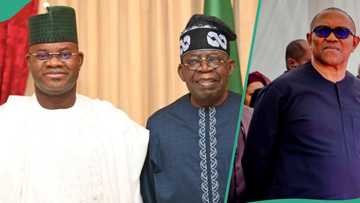
Read also
Yahaya Bello said Peter Obi won 2023 election but he helped rig it for Tinubu? Fact emerges
He said:
"Bureau de change operators in Nigeria wield considerable influence over the foreign exchange market, sometimes negatively impacting the naira. Their speculative activities can exacerbate currency fluctuations, leading to instability and devaluation.
"The parallel market they create diverts foreign exchange away from official channels, reducing the CBN's control and distorting the economy. Moreover, their role in facilitating illicit financial activities, including money laundering, worsens the situation."
He added that to stabilize the naira and foster economic growth, regulatory measures addressing the operations of bureau de change operators are crucial, ensuring transparency and alignment with national monetary policies.
EFCC agrees with BDCs on black market
In related news, Legit.ng earlier reported that the Association of Bureaux De Change Operators of Nigeria (ABCON) and the EFCC agreed to crash the dollar rate at the black market.
The decision was reached after a meeting at the EFCC headquarters in Abuja, attended by EFCC chairman Ola Olukayode and the ABCON National Executive Council (NEC) led by its president, Aminu Gwadabe.
During the meeting, approval was reached for ABCON to establish a standard website for the Bureaux de Change (BDCs) rate and trading platform.
PAY ATTENTION: Stay Informed and follow us on Google News!
Source: Legit.ng


